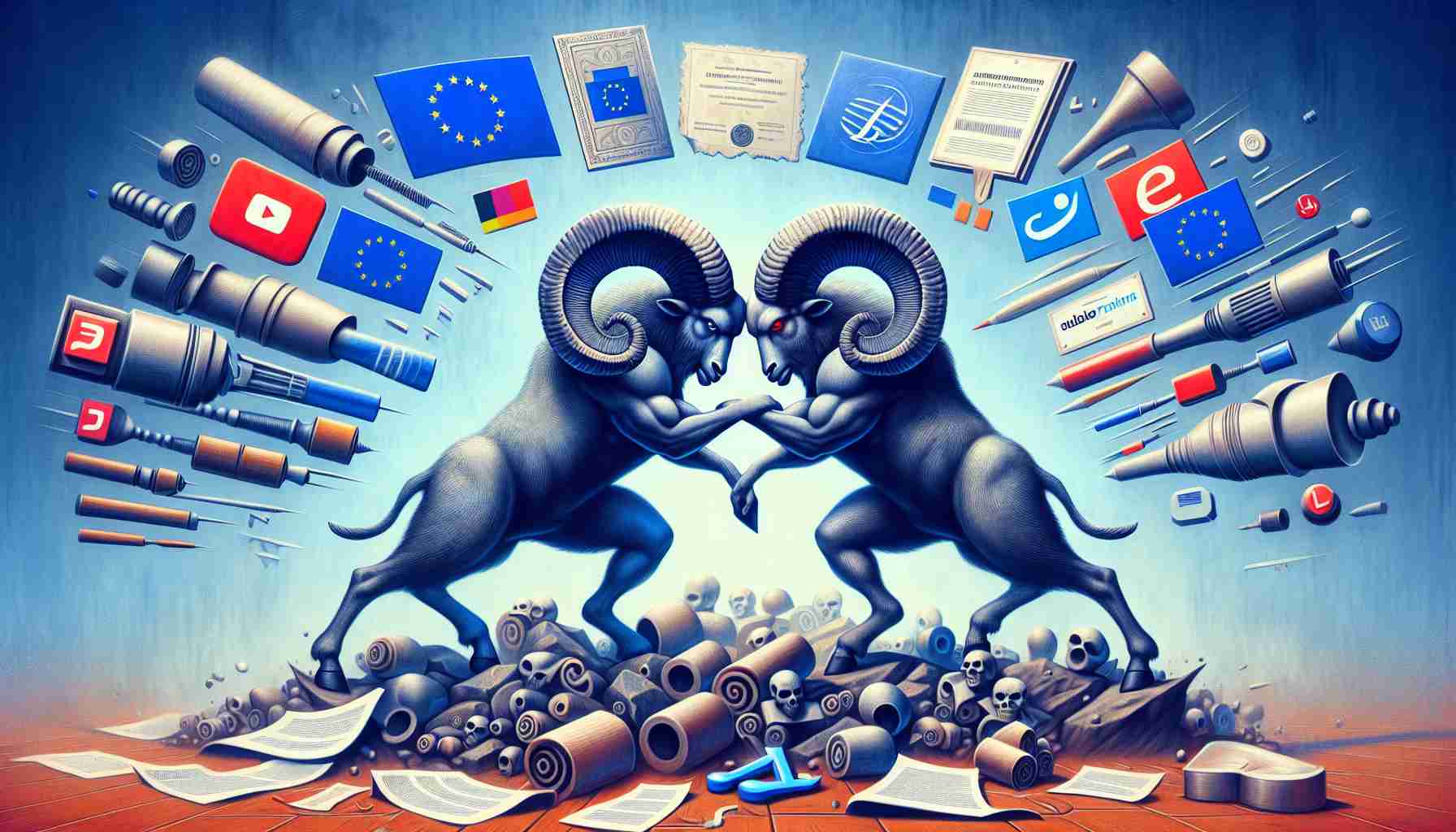Apple has recently blocked Spotify’s latest app update for the European Union audience, citing non-compliance with its App Store regulations. The digital music service is challenging the decision, alleging that Apple is acting in defiance of a European Commission directive aimed at curtailing anti-competitive practices.
At the heart of the dispute is the App Store’s requirement for a Music Streaming Services Entitlement. To direct app users to third-party purchase avenues, developers must agree to conditions laid out by Apple. Spotify is accused of attempting to sidestep this policy by providing links to external platforms for subscription purposes without consenting to the necessary terms.
The controversial aspect of this situation stems from what Spotify refers to as a “new tax” imposed by Apple. Rather than the typical 30% fee on in-app purchases, streaming services that adhere to Apple’s entitlement can use alternative purchasing methods, incurring a slightly reduced commission of 27%. Small businesses and longer-term subscriptions enjoy even lower rates.
Despite the implications of additional financial burdens, Spotify currently contributes little to Apple’s revenues from in-app purchases, having disabled this payment option years prior. Historic records reveal that in 2019, only a fraction of Spotify’s user base was subject to Apple’s fee, and those were established subscribers not affected by the higher first-year rate.
The contention between Spotify and Apple extends beyond this incident, with Spotify frequently vocalizing their stance against what they call the App Store’s “30% tax.” In contrast, Apple emphasizes the integral role of the App Store in Spotify’s growth trajectory, underscoring the tech giant’s contribution to the streaming service’s global prominence.
What are the key challenges and controversies associated with Apple and Spotify’s dispute in the EU?
The dispute between Apple and Spotify revolves around several key challenges and controversies:
1. Allegations of Anti-Competitive Behavior: Spotify alleges that Apple’s App Store policies are anti-competitive, favoring its own services over those of competitors.
2. App Store Commission Fees: Spotify objects to the so-called “Apple tax,” which is a 30% fee (reduced to 27% for streaming services under specific conditions) levied on in-app purchases.
3. Music Streaming Services Entitlement: This is an App Store requirement that streaming services must follow to direct users to third-party purchase avenues. Spotify’s actions suggest it seeks to bypass these requirements.
What are the advantages and disadvantages of the policies put in place by Apple?
Advantages:
– Quality Control: Apple claims that its policies help ensure the quality and safety of apps on the App Store.
– Revenue Source: The commission fee is a significant source of revenue for Apple and compensates for the infrastructure and services provided by the App Store.
Disadvantages:
– Market Dominance: Critics argue that Apple’s policies may stifle competition and give the company an unfair advantage in the market.
– Higher Costs for Developers: The fees can increase the cost structure for app developers, potentially leading to higher prices for consumers or thinner margins for developers.
Why does Spotify claim Apple’s practices are in defiance of the European Commission directive?
Spotify contends that Apple’s practices are in defiance of a European Commission directive that aims to prevent anti-competitive behavior. European authorities have been keen on ensuring fair competition within digital markets, and policies that disproportionately benefit the platform owner at the expense of competitors might fall foul of EU regulations.
What has been the historical relationship between Spotify and Apple in this context?
Historically, the relationship between Spotify and Apple has been strained due to multiple disputes over the App Store’s policies and fees. Spotify has been one of the most vocal critics of Apple’s 30% commission fee, which it refers to as a “tax,” and this has led to numerous public confrontations and legal challenges.
For more information on the policies and direct insights regarding the dispute between Apple and Spotify, you may visit the following domains:
– Spotify
– Apple
– European Union
The situation between Apple and Spotify in the EU represents a broader debate about the balance between platform control and fair competition in digital marketplaces. As this legal and economic battle unfolds, it will likely have implications for other tech giants and app developers operating within the EU and beyond.
